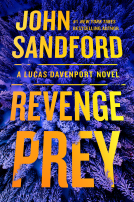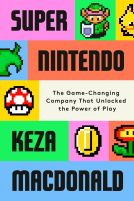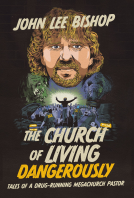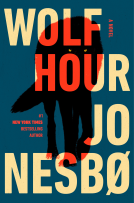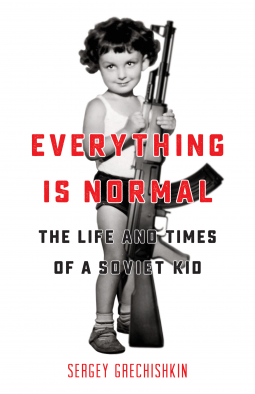
Everything is Normal
The Life and Times of a Soviet Kid
by Sergey Grechishkin
This title was previously available on NetGalley and is now archived.
Send NetGalley books directly to your Kindle or Kindle app
1
To read on a Kindle or Kindle app, please add kindle@netgalley.com as an approved email address to receive files in your Amazon account. Click here for step-by-step instructions.
2
Also find your Kindle email address within your Amazon account, and enter it here.
Pub Date Mar 27 2018 | Archive Date Mar 27 2018
Talking about this book? Use #EverythingIsNormal #NetGalley. More hashtag tips!
Description
Sergey Grechishkin’s world is strikingly different, largely unknown, and fascinatingly unusual, and yet a world that readers who grew up in the United States or Europe during the same period will partly recognize. This is a tale of friendship, school, and growing up—to read Everything is Normal is to discover the very foreign way of life behind the Iron Curtain, but also to journey back into a shared past.
Advance Praise
“Like walking through the looking-glass into 1970s-80s Leningrad... funny, shocking and occasionally even tender... prepare to be transported back to the CCCP.” —Lisa Dickey, author of Bears in the Streets
“A rare glimpse of life in Soviet Russia before and during perestroika. Everything is Normal is the tender and often funny story of a personal journey paralleled by seismic changes in the country itself. A captivating read.” —Elena Gorokhova, author of Russian Tattoo
Available Editions
| EDITION | Other Format |
| ISBN | 9781942645900 |
| PRICE | $15.99 (USD) |
| PAGES | 300 |
Links
Average rating from 8 members
Featured Reviews
An amazing story of growing up in the Soviet Union during the 1970-80's. The author very capably describes what it was like to be a child and teenager during this time.
I was surprised to read that his childhood was much like mine (in the U.S.) in some ways. School, friends, crazy hijinks. But different in so many other ways. Shortages of food and other goods, standing in lines, and limited news to mention a few. He describes how the country dealt with the death of Brezhnev, and on through the next several short lived rulers, to the freshness of Gorbachev.
For example, a few lines stood out to me.....
"She got me an awesome present: a piece of chewing gum. Had I been given such a thing several years later, I would have squirreled it away to share with my friends on some meaningful occasion".
"Many foodstuffs Westerners take for granted didn't exist in the Soviet universe even as a concept. There was no such thing as breakfast cereal, peanut butter, or ready-made-and-eat meals of any kind. We had never heard of yogurt, burgers, french fries, marshmallows, tea bags, popcorn, cookies with fillings, or a hundred other delicious items".
I was surprised at the rigors of their schooling. "In fifth grade, we began to study organic and inorganic chemistry, astromony, physics and ever more advanced math. These were mutli-year courses, and none of them were optional".
There was also "basic military training", taught in grade school. It was taught in the classroom, and "taught us simple and useful life skills, such as how to assemble and disassemble a Kalashnikov, an AK-47 assault rifle, in less than thirty seconds".
As far as basic rights, the author described it well when he stated, "In the Soviet Union, there is freedom of speech. But it's not written anywhere that one should be free after his speech".
I found this book to be fascinating, enlightening, and easy to read. I really hope that it is a big success, so others can learn about what it was like growing up in the Soviet Union.
 Reviewer 201788
Reviewer 201788
Railways and trains in Russia have always been much more than just pragmatic modes of getting from point A to point B. For a Russian soul, a never-ending train journey across the empty vastness of its land is a state of mind, a meditation, an existential reflection on life itself. One might also argue that Russia, the largest country on earth, is essentially built around a sprinkling of train stops on a single-track railway constructed by the tsars in the late nineteenth century. And then one might ponder whether the Russian national character stands in opposition to the American frontier spirit of personal freedom and yearns to submit to the train driver and his predetermined itinerary, however long he might take and wherever he should choose to stop along the way.
Sergey Grechishkin had what he calls a "normal" Soviet childhood in Leningrad, growing up in the '70s and '80s. His grandmother lovingly co-opted his upbringing from his mother, taking over more responsibility for him while his mother and stepfather raised his younger brother.
It wasn't at all what I'd expected, and it immediately separates itself from similar stories, memoirs and histories, which often dwell on the grim and serious. That's understandable, of course, considering the time and place - but Grechishkin's different tack in storytelling makes this such a unique and enjoyable read. Not to mention I really needed this book when I read it, on the heels of several depressing yet powerful memoirs about sad situations. I recommend it for a time when you need something funny and somehow lighthearted while still being very smart and reflective.
Sergey is relentlessly optimistic and it's obvious that he grew up with a lot of love, something that must have helped him adjust to life post-Soviet Union as well as some of the normal, everyday troubles they faced. This memoir covers his childhood and adolescence into the beginning of his college career, but ends as he embarks on his first foray outside of the Soviet Union, to China, as part of his undergraduate studies.
We get a preview of the life that's to come, but for the most part it's unexplored here, even as several chapters are interspersed throughout as flash-forwards from his adult life - vacationing with his family in Tuscany when he receives news of his beloved grandmother's death, and the bureaucratic troubles he has while returning to St. Petersburg to lay her to rest.
He tells adorable, amusing stories about youthful exploits with his friends, providing little insights about the kind of thinking that characterized their childhood.
Whenever anyone saw a friend playing with some interesting new object, the first reaction was usually to ask what the lucky owner would trade for it, even if one had no immediate intention to trade. It was sort of like a price check.
An interesting aspect of his story is that it covers the time both before and during perestroika, which isn't always something we get from these first-person accounts. We see how things changed, and how certain suspicions and cautions remained ingrained in the people after so many years of control and persecution. Grechishkin has also done something really interesting in his chronicling of everyday normalities at this time - whether it's the price of everyday items, the surprisingly intriguing logistics of how institutions within Soviet bureaucracy or schools actually functioned, or what their groceries were like.
I loved his description of the Soviet coffee situation - a valuable commodity, it was more readily available (to put it very loosely) as instant coffee, which doesn't resemble what we'd consider instant coffee at all. This stuff completely fascinates me, and every time he would launch into an explanation of some Soviet detail like this, I was glued to the page.
Most shops were simply called by the name of the product each sold. Dairy stores had a sign above the door that said, "Milk"; bakeries were called "Bread"; there were also stories called "Meat," "Fish," "Clothes," and "Household Items." Although if they had been called according to what they really sold rather than pretended to sell, most of those stories would've been named "Nothing Much," "General Disappointment," and "Fuck Off."
He also uses his family's experiences to explain greater trends and shifts in the Soviet Union, and how it began to open his eyes to what the world outside the USSR might be like, and what potential it might hold for him.
Dad's life trajectory - from gifted poet, to alcoholic dissident, to psychiatric patient, to rural recluse - was not as singular as you might think. Many men and women of his generation, finding no government-sanctioned outlet for their talents, descended into substance abuse and eventually burned out.
Although my family was of the firm opinion that I was nothing like my dad, either in talent or in temperament, I couldn't help but wonder sometimes, Is this what my life is going to be like? Is that going to be my choice - to either sell out or stay true to myself and drop out of society altogether? Are those the only two options for a Soviet citizen with brains?
His coming to terms with the idea that all is not as it appears, or at least not as the government insists it is, was beautifully done, interspersed with these very evocative examples. He has an easily understandable, often humorous and honest way of explaining the reasoning that led him to doubt the official lines and propaganda.
All Soviet citizens were born, grew up, worked, gave birth, and died under an all-encompassing implied sign: "Pardon Our Dust, Work in Progress." But in the last years, it had been dawning on people more and more that there was no actual work being done - there was only dust. The USSR was not decrepit and poor because it was putting all its effort into building a bright, shiny tomorrow for all the people, with limitless food, free toys for all children, vacations on Mars, and a room for every person to themselves, in a separate apartment without endless lines for the toilet. It was that way because construction had long stopped.
It's truly funny, with a dad joke here and there, but for the most part the humor fits the narrative perfectly. It's an interesting concept too - most Soviet memoirs are near devoid of humor, and that's not a criticism at all, but it's hard to make anything about this time lighthearted and funny. It feels strange even writing that a memoir of a Soviet childhood is lighthearted, but it's been accomplished here. And the effect is pretty wonderful.
Each chapter begins with a cultural joke about the era, the politics, or the people. A favorite:
A woman is taking a bath in a communal apartment and notices a man's face watching her from behind frosted glass.
"What's the matter with you?!" she yells.
"Oh please, like you've got something I've not seen before," he says. "I'm just making sure you're not using my soap!"
His memoir draws to a close during his undergraduate studies, where he's earned a coveted place at the university in Chinese studies, allowing him the valuable possibility to travel abroad, where we're left to assume he came across further opportunities allowing him to immigrate, since the seeds of dissatisfaction with his homeland had already been planted.
Grechishkin's writing is natural and comes across breezily, even addressing sentimental or serious subjects. There's some of the chatty style characteristic of humorous memoirs, but it's more well written than others that also employ this near-conversational style.
A revealing, clever, sarcastic, and ultimately sweet, charming and hopeful memoir of growing up to realize everything you've always understood as normal isn't the way things should really be at all. Well written and a breath of fresh air in the genre of Soviet memoirs.
 Willy M, Reviewer
Willy M, Reviewer
This book covers a lot of the stuff you find in similar books, but I find it has one remarkable aspect other books don't. The passage of time has given people a greater sense of perspective about the Soviet Union, both the good and the bad. This is something anyone with an interest in Russia and the Soviet Union should read.
Readers who liked this book also liked:
Keza MacDonald
Business, Leadership, Finance, Entertainment & Pop Culture, Nonfiction (Adult)
Ellen Kuhlmann; Mark Turner
Outdoors & Nature, Sports, Travel
John Lee Bishop
Biographies & Memoirs, Nonfiction (Adult), True Crime



